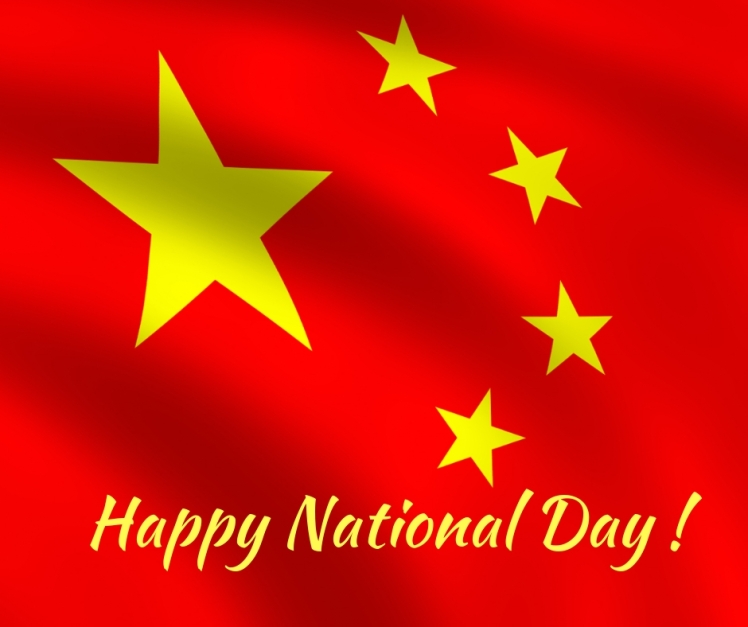(单词翻译:单击)
China's National Day is celebrated on October 1st every year to mark the formation of the People's Republic of China.
每年的10月1日是中国的国庆节,这一节日标志着中华人民共和国的成立。
It is also known as National Day and National Golden Week. In Chinese, "Guo qing jie."
它也被称为国庆节和国庆黄金周。在中文里读作“Guo qing jie”。
The 7-day holiday from October 1st to 7th is called 'Golden Week', during which seas of Chinese people go traveling around the world.
10月1日至7日为期7天的假期被称为“黄金周”,在此期间,很多中国人会选择外出旅游,周游世界。
The founding ceremony of New China was held in Tiananmen Square in Beijing on October 1st, 1949.
1949年10月1日,新中国开国大典在北京天安门广场举行。
The Government declared October 1st as National Day every year from 1950 onward.
中央人民政府宣布,自1950年起,以后每年的10月1日为国庆日。
From 1950 to 1959, large celebrations were held every year on National Day, along with military parades.
从1950年到1959年,每年的国庆都举行大型庆典活动,同时举行阅兵。
In 1960, based on the principle of diligence and thrift,
1960年,本着勤俭建国的方针,
National Day celebrations were reformed to "a small celebration in five years, a big one in ten years, and a military parade on every big celebration".
国庆节庆祝制度转变为“五年一小庆、十年一大庆,逢大庆举行阅兵”。

From 1960 to 1970, grand rallies and mass processions were held in Tian'anmen Square, with no military parade.
此后,自1960年至1970年,每年的国庆均在天安门广场前举行盛大的集会和群众游行活动,但未举行阅兵。
From 1971 to 1983, China celebrated the National day only with large-scale park activities and other galas.
1971年至1983年,都是以大型的游园联欢活动等其他形式庆祝国庆。
In 1984, the 35th anniversary of the National Day, a huge military parade and mass parade were held.
1984年,也就是国庆35周年,举行了盛大的国庆阅兵和群众庆祝游行。
Since then, there were three parades held in 1999, 2009, and 2019.
自那之后又举行了三次国庆阅兵和游行,分别是在1999年、2009年和2019年。
On September 18, 1999, the State Council designated National Day as a "holiday for all citizens" with a three-day holiday.
1999年9月18日,国务院规定国庆节为“全体公民假日”,放假三天。
In 2000, the 7-day "National Day Golden Week" appeared.
2000年,7天的“十一黄金周”诞生了。
The 3 days holiday is connected with the surrounding weekends,
也就是“十一”的三天假期与前后的两个周末连在一起,
so people can enjoy a 7-day holiday from October 1st to 7th, which is the 'Golden Week'.
从而人们就有了一个从10月1日到7日的7天长假,即“黄金周”。
By the way, China now has two Golden Weeks, the National Day Golden Week and the Chinese New Year Golden Week.
顺便说一句,中国现在有两个黄金周,分别是国庆黄金周和春节黄金周。


